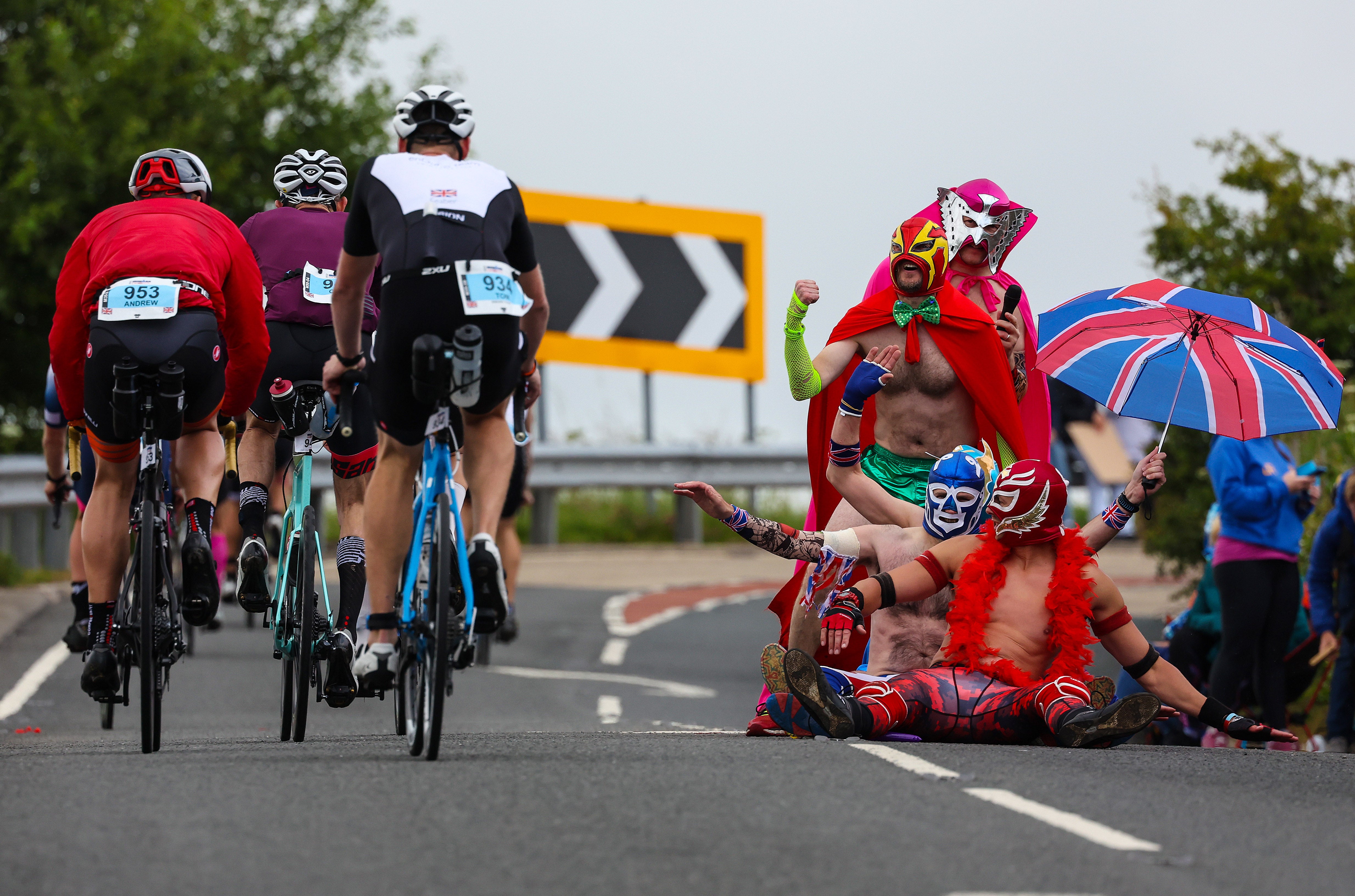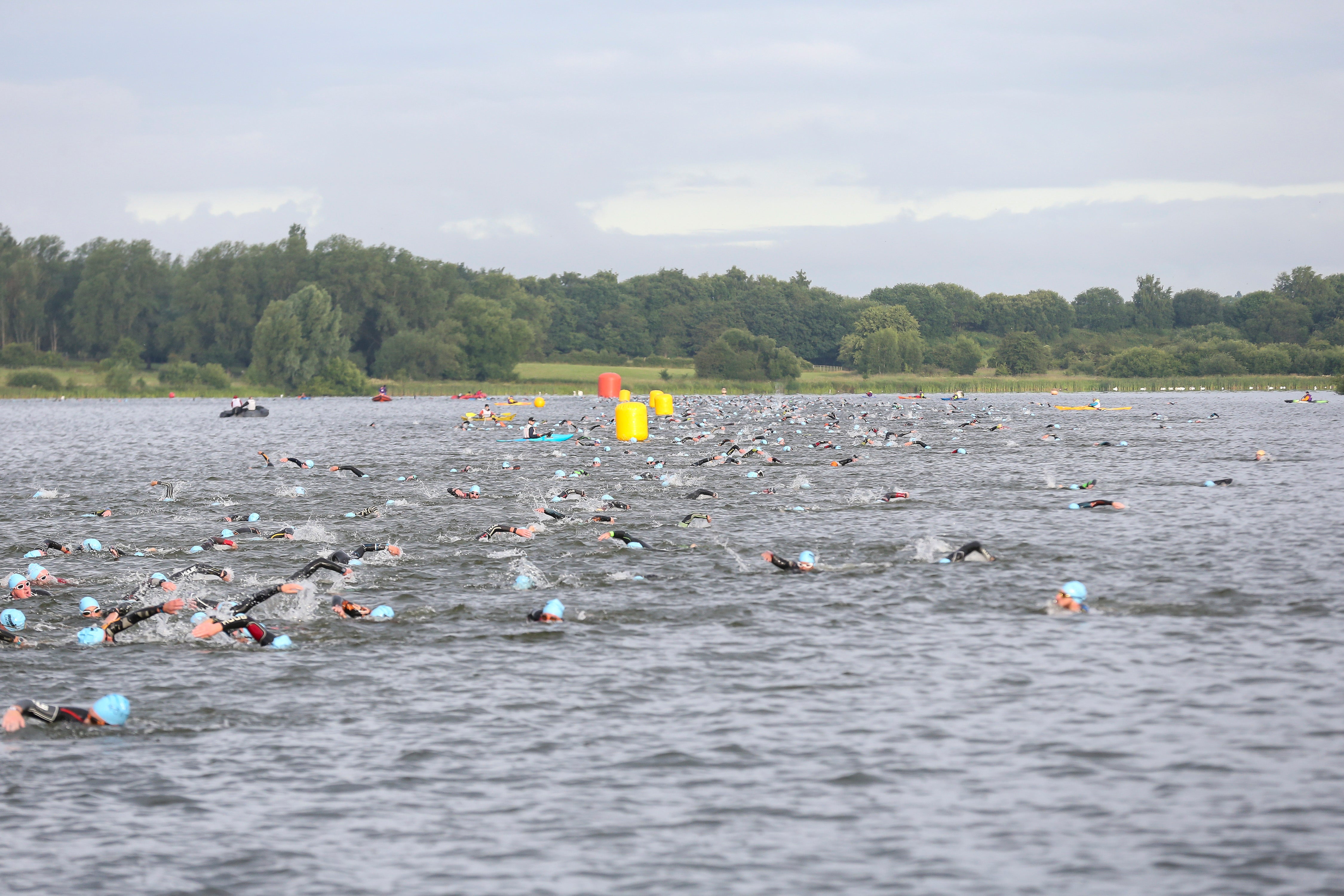Uncategorized
“Awful and yet exuberant”: The true experience of competing in an Ironman
‘Horrible and somehow joyous’: What it’s really like doing an Ironman
The truth is that crossing that finishing line taught me nothing. But getting there changed everything
The journey to doing an Ironman probably started four years ago, in summer 2019, when for very little reason I decided to do a sprint triathlon with two weeks’ training. I enjoyed it so much that a couple of months later I ran a marathon with seven weeks’ training. It started to dawn on me that I actually quite liked doing these things, but that it might be nice to actually prepare for one for once.
Then, a few months later, came the pandemic and lockdown. Being stuck in one place made me realise how much I truly loved to move, and I spent those early days of the pandemic exercising. Something about those first forays into endurance events had stuck with me, and I’d run another marathon and become obsessed with cycling in the meantime. And so I resolved that I would start getting ready for probably the biggest endurance event there is: the Ironman.
An Ironman is a very different beast to the previous events I’d done: the bike ride is nine times as long as the one in a sprint triathlon, and you run a marathon only after having swum 2.4 miles and cycling 112 miles. I resolved to train for it very differently too – that is, by actually training.
And so began eight and half months of training, which amounted to 300 hours of swimming, biking and running, during which I traversed 3,500 miles. It was a long trudge of early morning stationary bike rides, runs in the cold and dark of winter, and weary walks to the swimming baths and back. And I loved it.
The final day arrived in July, in Bolton, which I’d chosen because it is relatively close by and meant avoiding plane travel. What I hadn’t realised is that the event I’d turned up to was a notorious Ironman that had a reputation for being especially difficult (even for an Ironman, which is said to be one of the hardest one-day sporting events there is). The day was all lashing rain and tiredness – but the indefatigable friendliness of the people of Bolton and the support of friends and family meant nothing ever hurt too much.

About 14-and-a-half hours after I had dived into a cold lake in Greater Manchester, panicked I couldn’t swim, fished myself out the water and jumped on a bike, been battered by winds on the top of the Lancashire Moors, and then conducted something that was ostensibly a “run” (but ended more like a plod) it was all over. A man was reading out my name and saying the four words that every triathlete supposedly wanted to hear: “you are an Ironman”.
Everyone talks about how great that finishing line feels. And it does. But at least initially it is more like a very profound relief than it is anything like joy. I wish I could tell you that I came to understand some great wisdom in that moment; that the suffering had brought with it new knowledge. But I was almost too tired to think, let alone think deeply. “It’s time to stop running now,” I tell myself, and in doing so I use up all the remaining energy I have left in my brain. I’m wrapped in a foil sheet and given a slice of pizza, which I munch mindlessly, and then hobble into the arms of my partner and family.
It’s tempting to be disappointed that the finish line didn’t bring with it a great revelation. But then I realise that I’d already been blessed with it. The training and the realisation that it brings you are much the same: they occur not all at once but almost imperceptibly slowly, one per cent at a time, like water cutting through stone.

Every day through that training period in which I swam, rode and ran was a tiny transformation – too small even to notice. That was happening in my body, which was gradually getting fitter. But it was also happening in my mind, which was getting stronger just as gradually.
Some of the things I realised were physical and niche. My knowledge of electrolytes, calorie expenditure, energy systems and triathlon kit is more detailed than I’d ever thought possible. But much more of what I learned through the process of doing an Ironman was the kind of thing that sounds trite until you’re really forced to understand it.
The Ironman had taught me to trust myself as I might a friend: if my conscious mind thought about what I was doing, it was gripped by panic. But I learned that was entirely separate from the actual bits of my body and brain that would be doing the thing, and that I should just put the work in and leave them to it.
It made me realise that difficult challenges are often just things you aren’t ready for, and all you can do to deal with them is try and prepare yourself as best you can. I learned that my family and friends are remarkably tolerant of me unnecessarily causing both myself and them unnecessary suffering; I realised how grateful I am that that is the case. And I learned that often the struggle is a blessing: difficult though the Ironman and its training were, to be able to work that hard for fun is a joy.
The truth is that crossing that finishing line taught me nothing. But getting there changed everything.
-

 Liverpool1 year ago
Liverpool1 year agoJubilation as English FA reversed back MANCHESTER UNITED late winning goal against Liverpool yesterday – all 3 points awarded to United
-

 Arsenal1 year ago
Arsenal1 year agoJubilation as English FA conclude appel on Arsenal dissalowed goal against Aston Villa and Arsenal rewarded 3 points – Mikel Arteta thank FA for their decision
-

 Manchester United1 year ago
Manchester United1 year agoBREAKING NEWS: Manchester City sack PEP GUARDIOLA this morning after winning just one match out of his last six matches
-

 Manchester United1 year ago
Manchester United1 year agoCONFIRMED: Due to many VAR-related issues, the English FA has cancelled yesterday’s Manchester United vs. Bournemouth match. A new date for the match has been scheduled. Eric Ten Hag beaming
-

 Manchester City12 months ago
Manchester City12 months agoManchester City move to Fourth place on EPL table at Everton after coming from behind to get the victory.
-

 Liverpool1 year ago
Liverpool1 year agoLiverpool Signings for the January transfer window 2024 have been confirmed.
-

 Manchester United1 year ago
Manchester United1 year agoTears as Eric Ten Hag left MANCHESTER UNITED in shame – Ten Hag’s first press conference after been sacked today as he insults Man Utd board
-

 Manchester United1 year ago
Manchester United1 year agoWayne Rooney said he would coach Manchester United because of…
